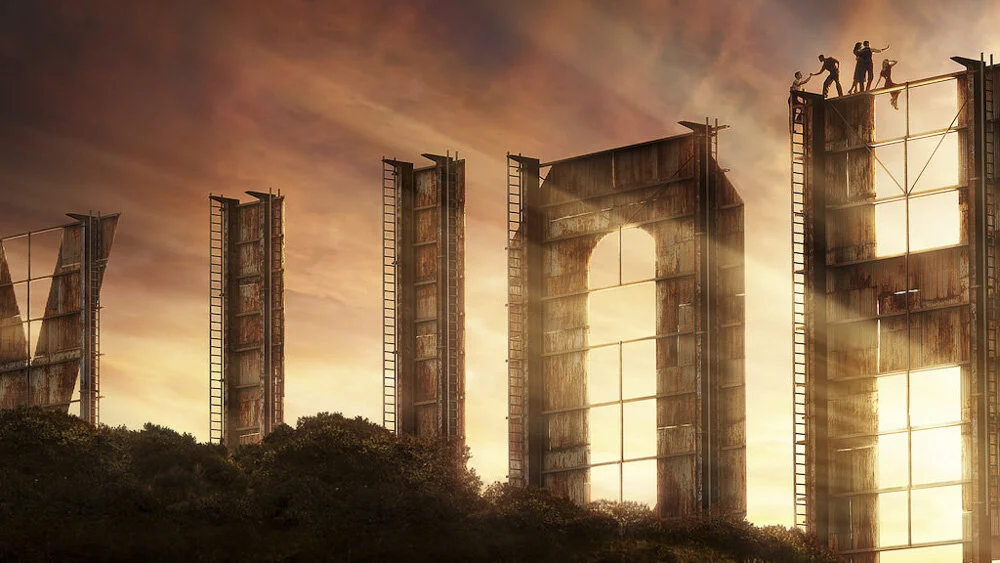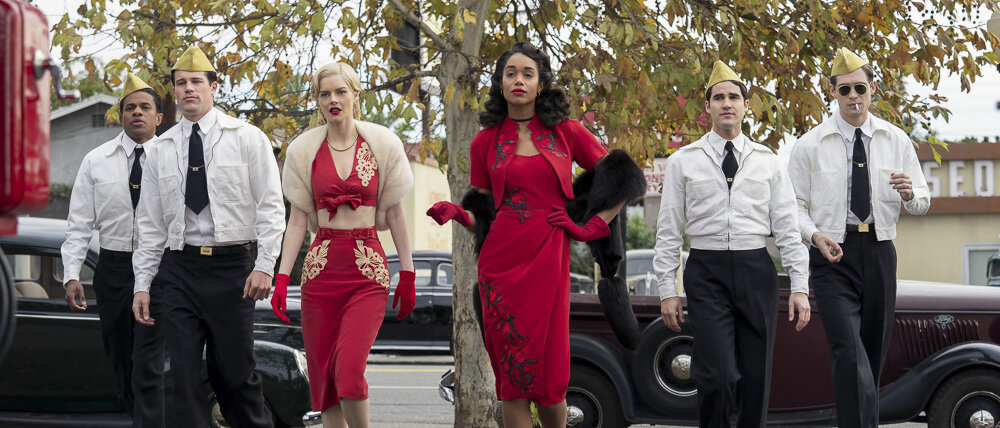Nostalgia on Netflix
© Hollywood, Netflix 2020
By Michelle Mora
A 1946 teal blue Packard Club Sedan pulls into a glossy-white, box-style gas station. A man in a tailored suit casually smokes a cigarette in an old school diner with candy-striped straws. Mink stoles cover evening gowns, telephones live in bright red boxes, folding cameras capture moments with blinding flash bulbs, and fedoras top every aspiring actor waiting outside the studio for a shot at being an extra in a classic western film. Netflix's new series, Hollywood, looks back on an era long before our current crisis and illustrates a shift towards nostalgia that seems to be inextricably linked to this time of universal uncertainty.
© Hollywood, Netflix 2020
With the coronavirus threatening our way of life and stoking our anxieties about the future, it’s not surprising that many are responding to the present with a sentimental longing for the past. According to psychiatrist and philosopher Neel Burton, M.D., nostalgia is “a vehicle for traveling beyond the suffocating confines of time and space.” As we spend more time both physically and mentally constricted, streaming entertainment is more in demand than ever before and many of us are finding solace in the media we consume. Though there is no shortage of new content, many viewers are returning to their old favorites, to the simple lives in sitcoms, to the comforts of classic film. In times of uncertainty, we long for the familiar, and in times of mass confusion, we find our nostalgia on Netflix.
© The Office, NBC
Netflix has been the top streaming choice during the pandemic and some of the most-watched content on Netflix has been our favorite shows of yesteryear. According to a report by Variety, The Office became the most-watched acquired show on Netflix during one week in early March when news of the coronavirus started to hit home and isolation and social distancing began. Netflix understands the power of these beloved series and has acquired other classics like Star Trek, Twilight Zone, and Cheers. Viewers are drawn to these shows because they miss their own everyday lives in the office. We crave the stable dysfunctionality of the average workplace, we wish we could hop aboard the USS Enterprise to explore far off galaxies, and we long for that place where everybody knows our name. As we struggle to make sense of the world around us, we return to the characters we love and stories we’ve already been told.
© The Stranger
Netflix has also reached a wider cinematic audience by offering a variety of classic films. Spanning almost 70 years, Netflix media includes 70s thrillers like Taxi Driver, 60s westerns like Once Upon a Time in the West, and film noir from the 40s like The Stranger. With film and television production currently on hiatus and entertainment and live events canceled, we may see a sharper trend towards revisiting the films of Hollywood history. Netflix's recent partnership with MK2 Films, a Paris-based sales and distribution company, is bringing 50 old French and international films to Netflix. Directed by figures such as François Truffaut, Charlie Chaplin, David Lynch, Michael Haneke, Steve McQueen, and Krzysztof Kieslowski, these movies are making film history and appreciation accessible to Netflix’s 182 million worldwide subscribers.
© Hollywood, Netflix 2020
With their new series, Hollywood, however, Netflix is throwing a twist into this trend toward nostalgia by looking back on the post-WWII era and reimagining what the movie industry could have looked like if Hollywood had embraced diversity during its golden age. What if a Jewish woman was running a studio? What if an openly gay couple could hold hands at an Oscars ceremony? What if a black man won the Academy Award for best screenplay? By reforming the entertainment industry through a more progressive lens, Hollywood is acknowledging the bias, racism, misogyny and social injustices that we inevitably find when looking backward. Rather than idealizing the past, this series acknowledges its flaws, rewriting some of the wrongs of Hollywood and giving stories to those often left out of the historical narratives of Tinseltown.
© Hollywood, Netflix 2020
Nostalgia has always played a role in contemporary culture. But in an age when we are unsure if the world will ever return to our current perception of normal, we cling to the past more than ever before. Through streaming media, people all over the world are coming together around their favorite stories and by reshaping narratives to incorporate diverse voices, Netflix is paving the way for more inclusivity in our collective nostalgia.













